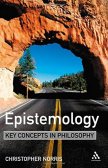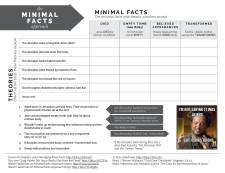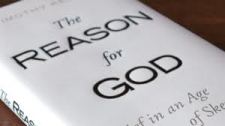Book Discussion of Christopher Norris’ “Epistemology: Key Concepts in Philosophy”
Chapter 5: Making for Truth: Some Problems with Virtue-Based Epistemology –
Section I.
So, basically, virtue epistemology goes beyond the fact that there are certain virtues which people can possess which are going to be more knowledge-conducive than other characteristics. A person who possess “honesty, integrity, caution, openness to criticism, willingness to give up cherished beliefs in the face of conflicting evidence” or “attentiveness, acuity, open-mindedness, respect for the evidence, consistency in reasoning, absence of dogmatic preconceptions” or “disciplined, rational, open-minded, evidentially constrained and well-motivated” (etc.) is more likely to arrive at truth than a person who believes with blind faith—in the absence of evidence, or in spite of counter-evidence. But, again, virtue epistemology does not stop here.
Virtue epistemology says a truth-claim can only be made by a person motivated by the above-mentioned virtues. To be motivated by those virtues is “a safeguard against sundry forms of epistemic error or fallacious reasoning”. Advocates often cite Aristotle’s discussion of phronesis, “the kind of cultivated practical wisdom that typically results in sound moral judgments and virtuous actions.” These thinkers hold that a formal or rule-based account cannot explain why formal or rule-based accounts are reliably knowledge-conducive, and that what really matters is “whether those rules or methods are applied in the right way”—not just applied, but decided upon, one would think.
Christopher Hookway makes the point that Quine showed that attempts to justify our attempts to justify “must be grounded in certain intuitive judgments concerning the best, most plausible or (although Quine would not have phrased it this way) epistemically virtuous means of squaring the empirical evidence with our standing ontological and theoretical commitment.”
Hookway and other virtue epistemologists’ task is to “spell out the various particular attributes and qualities that characterize such practices at their knowledge-conducive best.” This avoids the lack of normativity in Quine’s naturalization, while also avoiding the problem of vicious regress (rules to justify rules, etc.).
Still, any “feeling of conviction” (Quine’s words) “we might experience with regard to some given construal of the evidence must itself be the ‘blind resultant’ of various sensory promptings together with our likewise passive registration of the ‘strength’ they acquire from associative linkage with other such enchained stimuli.” If that is true, it leaves no room for normative criteria like “our vaunted sense of simplicity” or “quest for ‘likeliest explanation’” to be involved in “the idea that progress in knowledge might indeed be a matter of carefully reasoned, consciously pursued and rationally motivated theory-choice”. This is an “active” (transcendental) versus “passive” (naturalized) problem. Hookway thinks there must be more to this “feeling of conviction” than “a downright Quinean empiricist appeal to sensory promptings or the incoming ‘barrage’ of ambient physical stimuli.”
The problem goes back to Hume “and the absolute impossibility, as he thought, of ever establishing a rational connection between matters of factual or logical truth and matters of evaluative judgment.” Norris is referring to the is-ought fallacy, but virtue epistemology would actually commit the ought-is fallacy (both fallacies being a form of reification), hehe. (Also, character is being, conduct is doing, and whatever we should do is how we should be, so if we are being the way we should be, we are following the rules. But, since we are not perfect, the rules take justificatory priority, since we do not always follow them—but when we do, they shape our character. Did I just resolve some crazy epistemological dilemma? Note that I am not committing the is-ought fallacy, nor the ought-is fallacy…at least…I don’t in my paper. I need to think about this more.) Anyway, virtue epistemologists think they fill the normative gap between evidence and theory left by Hume and Quine.
However, there is a distinction between truth (objective warrant) and truthfulness (getting things right to the best of one’s ability). Truth transcends truthfulness. Virtue-epistemologists reply that the realist position has been weakened by those who claim this puts truth beyond reach:
–anti-realists like Michael Dummett (critiqued in chapter 1 and 2)
–paradigm-relativists like Thomas Kuhn
–“so-called ‘internal’ (or framework-relative) realists like the later Hilary Putnam”
–“inventors of Gettier-type counter-examples which purport to show how knowledge can always come apart from a specification of justified true belief”
–Kripkensteinian argument “that any rule for the conduct of correct reasoning in mathematics, logic or whatever field of enquiry will always be subject either to an infinite (vicious) regress or to the charge of trivial circularity.”
–recent writers who put forward the case that “skepticism gets a hold only through the realist’s misguided (because self-defeating) claim for the objectivity of truth, that is to say, its radically non-epistemic or ‘recognition-transcendent’ character.”
All of that has been addressed previously in the book. Also, Norris answered that Crispin Wright and other RD theorists in chapter four fall short “since they end up either by endorsing antirealism in a somewhat more nuanced form or by tautologically equating truth with the deliverance of optimized epistemic warrant or idealized ‘best judgement’.
Virtue epistemology “claims to shift the whole ground of debate” to what motivates the rule-following, rather than the rule-following itself. It calls into question the logical empiricist distinction between “context of justification” and “context of discovery” discussed in chapter 3.
*****
Jonathan Homrighausen replied:
I largely like virtue epistemology. I’m surprised you don’t; a lot of its major proponents are Christian philosophers (e.g., Linda Zagzebski) and it jives with a lot of Scriptural statements about how only those who are wise/have open hearts can see God.
“Norris is referring to the is-ought fallacy, but virtue epistemology would actually commit the ought-is fallacy”
This is a criticism of Aristotelian ethics in general. I don’t see the problem; of course we can see what works best in the world by looking at the world (“is”).
“Virtue epistemology says a truth-claim can only be made by a person motivated by the above-mentioned virtues.”
Which thinkers said that? My understanding of virtue epistemology is that it was describing “justified beliefs” which may not always be “true.” I think the questions can be separated. But yes, the context of justification, the actual events surrounding one’s holding of that opinion, is important. Many times I have spoken to someone and been convinced they were off, but not been able to explain why other than their being arrogant, not taking in all relevant information, etc.
Jonathan









